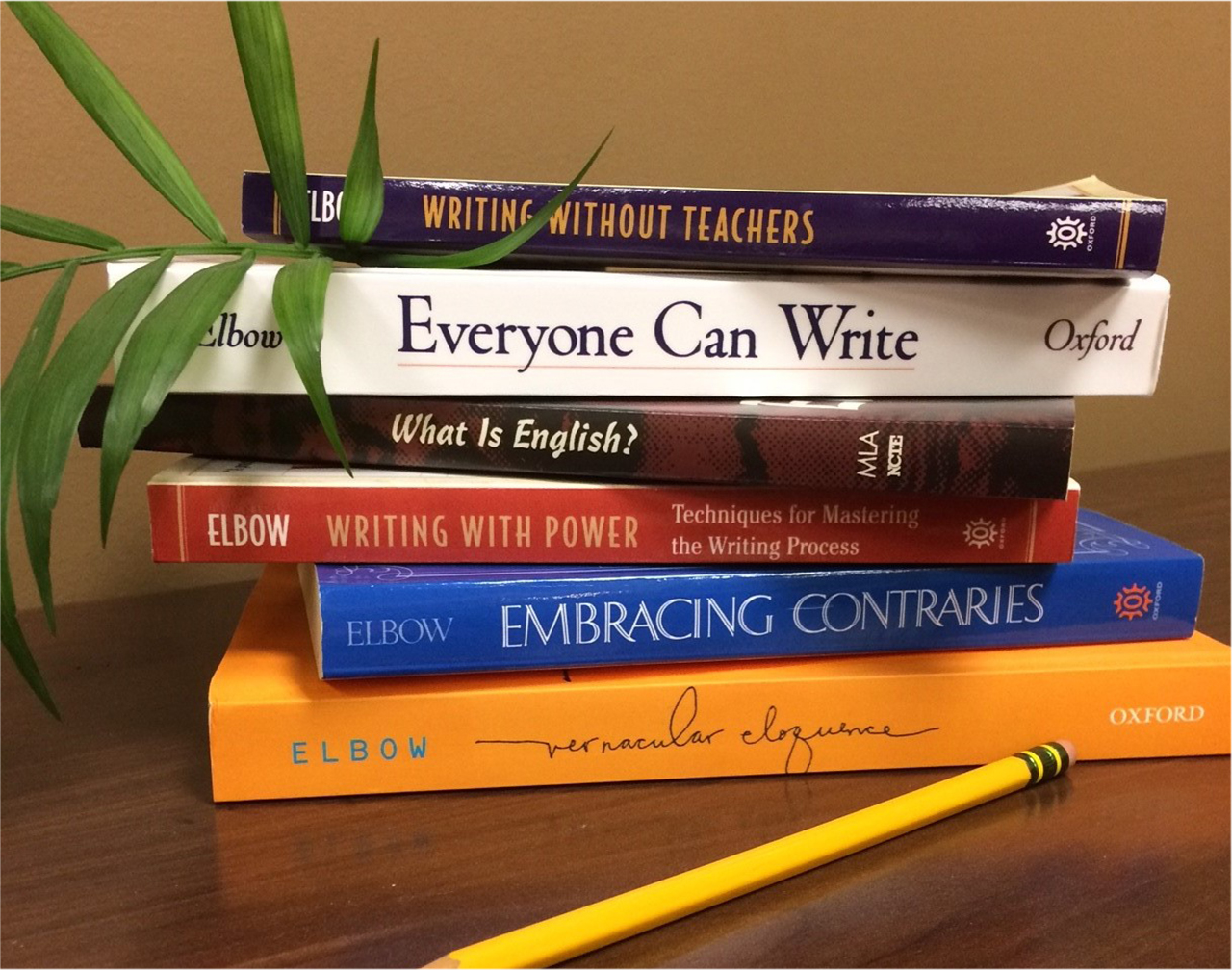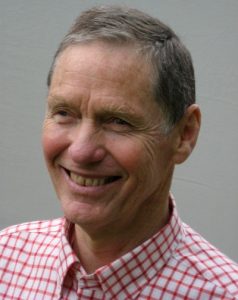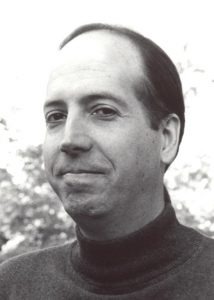Students of English often read the work of living authors, some of whom might be considered living legends. The students in the class “Major Figures in the Teaching of Writing” did more than read the work of a pioneer of teaching writing, they talked with the man himself.
Peter Elbow, who penned such volumes as Writing Without Teachers, agreed to take part in a series of video conferences with the graduate students in Professor Bob Broad’s graduate class. “Not only did they read works by Peter Elbow, and criticism of Peter Elbow, the students were able to speak with him,” said Broad, who immediately thought of his former mentor Elbow when developing the course.
From his home in Seattle, Washington, Elbow said, “For me, it is such a pleasure to see and read the students’ reactions to my work. Talking with others always opens windows to new ideas, even on work I started in the 1970s.”
Through his research, Elbow developed many of the practices of free writing, editing, and revising which are now considered standard practice for teaching writing processes. Broad thought Elbow the perfect fit for his course, whose students were in-service, high school English teachers working on Post-Baccalaureate Certificates in the Teaching of Writing. The students met on Saturdays around their teaching schedules, and Elbow would Skype with them. “The video conferencing really gave the class that rich dimension—just to see his smile, to hear his jokes and little comments,” said Broad. “They could pose questions to him based on their own interests. It made the experience personal and also richer intellectually and in a scholarly way.”
Student Clinton Soper found inspiration through the chats with Elbow. “Peter’s dedication to the art of teaching writing was clear in his willingness to spend time and energy with our small group of teacher-students on a weekly basis,” said Soper, an English teacher at Roanoke-Benson High School in Roanoke, Illinois. “Peter is a gem, and I miss seeing his infectious smile up there on the screen.”
Elbow admitted he chuckled at the idea of being called a “major figure” in teaching, even though his work has spearheaded many modern writing processes—from peer editing to group discussions. “I imagine many of the ideas have been absorbed into the field of writing and teaching writing,” said Elbow, “but for me, it was just wonderful to hear all the different approaches to writing the students brought.”
It takes just as much discrimination and thought to give positive comment.
— Peter Elbow
The capstone of Broad’s course will be the dedication of an entire issue of Illinois English Bulletin to Elbow’s work. The state’s journal for teachers of secondary English, the Bulletin, will contain essays from the graduate students on the impact of Elbow’s work, complete with a submission from Elbow himself.
Titled “Re-Believing Peter Elbow,” the issue, like the graduate class, takes off from an appendix essay in Elbow’s 1973 Writing Without Teachers, an essay Elbow calls, “The Doubting and Believing Game: An Analysis of the Intellectual Enterprise.”
“It is a special allusion to a very powerful idea that Peter Elbow introduced,” said Broad. “Elbow argued that education, especially higher education, emphasizes the doubting game: You hear an idea and you critique it. You try to find its weaknesses.” But Broad was calling attention to how Elbow, while affirming the value of the doubting game, insisted on the importance of a matching game, namely, the believing game. “That’s where you hear an idea that sounds doubtful or wrong, but you look for all the ways it might be fruitful or even true. But in order to see the value of ideas that seem dubious or wrong, you must make a leap of faith and try to believe them, at least for now.”
In his works, Elbow pushed for writers to employ both approaches. He noted that the positive is needed now more than ever. “People tend to think of positive reinforcement as ‘wimpy’ or ‘mushy,’ or not careful,” Elbow said, “but it takes just as much discrimination and thought to give positive comment. In fact, sometimes it’s easier to say ‘I disagree with this’ than to find what is valid or useful in an idea that most people see as obviously wrong.”
Soper plans to take the lessons from Elbow back to his classroom, and said the lessons will also strengthen his relationship to his pupils. “My students are writing more than ever,” said Soper, who noted he will implement daily freewriting, grading contracts, reader-based feedback workshops, and portfolio assessment, as well as a more open approach. “I’m increasingly striving to cultivate a collaborative, constructivist relationship with my students, rather than the potentially adversarial relationship that emerges when students simply see me as the ‘grader.’”
Broad said he encourages students to employ both techniques when encountering any new idea or approach. “We need to exercise both the believing muscles, if you will, and the doubting muscles,” said Broad, who speaks with a certain relief that teachers are gaining the chance to be re-introduced to Elbow. “I would say that our profession has been playing the doubting game with Peter’s work for 30 years and that it is time to play the believing game and to see what value we can find.”



